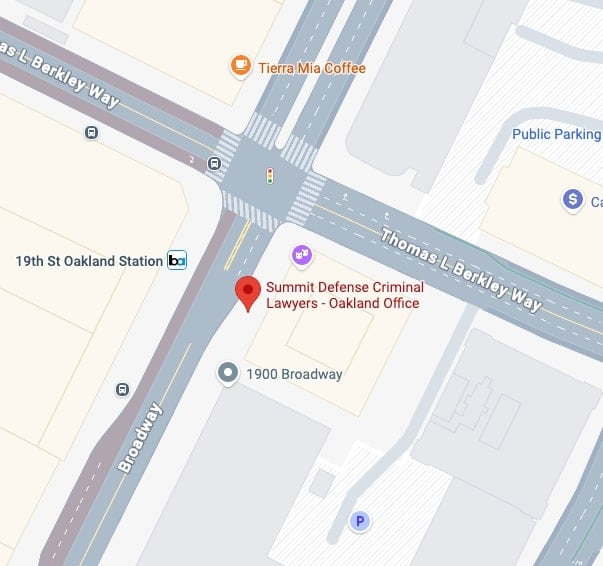Do Not Speak to Oakland Police Without an Attorney
If the Oakland Police Department or any Alameda County law enforcement agency wants to question you about a sex crime, remain silent. Many people believe they can clear up misunderstandings by explaining their side of the issue. However, anything you say can be used as incriminating evidence against you in Alameda County Superior Court.
Sex crime allegations are serious. Even an innocent statement can be misinterpreted and used against you. Police may claim they only want to hear your side of the story, but their goal is to gather evidence for prosecution.
Before speaking to anyone, request a criminal defense lawyer. An attorney will protect you from unlawful questioning and ensure your constitutional rights are upheld. Do not sign anything, agree to any tests, or discuss details of the case without legal representation.
Preserve Evidence That Supports Your Case
If you are accused of a sex crime, gathering helpful evidence is crucial. Save any text messages, emails, or social media conversations that could support your defense. These can help prove false accusations, mistaken identity, or consent.
If you were in a different location at the time of the alleged offense, find receipts, surveillance footage, or GPS records that confirm your whereabouts. Witness statements can also help challenge criminal allegations.
Do not delete anything, even if you believe it could be misinterpreted. Tampering with evidence can make the situation worse. A criminal defense attorney can review the details and determine what evidence is important for your defense.
Contact an Oakland Sex Crime Defense Attorney Immediately
Time is critical in sex crime cases. The sooner you contact a criminal defense lawyer, the better your chances of building a strong defense.
An experienced attorney will:
- Review the details of your case.
- Challenge false allegations and incriminating evidence.
- Prevent self-incriminating statements.
- Defend you against sex crime charges in court.
If you are under investigation or have been formally charged in Oakland or Alameda County, do not wait. An experienced Oakland sex crimes defense attorney can protect your rights, negotiate with the Alameda County District Attorney’s Office, and fight to clear your name. Call Summit Defense at (510) 877-8356 for a free consultation at our Oakland office.
Oakland Sex Crime Laws and Penalties in Alameda County
California has some of the toughest laws on sex offenses. A sex crime conviction can lead to jail time, mandatory sex offender registration, and other criminal penalties. The law also imposes collateral consequences, affecting employment, housing, and reputation.
Here’s what you need to know about the penalties, registration requirements, and expungement options for sex crime charges in California.
What Are the Penalties for a Sex Crime Conviction?
A sex crime conviction carries severe consequences, including:
- Jail time or prison time – Sentences vary depending on the charge. Misdemeanors may result in county jail time, while felonies can lead to years in state prison.
- Sex offender registration – Many sex offenses require lifetime registration as a registered sex offender.
- Criminal records – A conviction results in a permanent criminal record, affecting employment and housing opportunities. Criminal penalties may include fines, probation, and court-mandated therapy.
- Criminal penalties – Fines, probation, and court-mandated therapy may be required.
- Collateral consequences – A conviction can affect child custody, professional licenses, and immigration status.
The severity of penalties depends on the nature of the sex crime, prior convictions, and the specifics of the case. In Oakland, sex crime cases are prosecuted through the Alameda County Superior Court – Wiley Manuel Courthouse at 661 Washington Street. The Alameda County DA’s Office is known for pursuing maximum penalties in sex offense cases, making strong legal defense essential.
Sentencing Factors That Affect Your Oakland Sex Crime Case
The penalties you face for a sex crime conviction in Oakland depend on several factors. Judges and prosecutors at the Alameda County Superior Court – Wiley Manuel Courthouse consider the age of the alleged victim, the defendant’s criminal history, the severity of the alleged offense, and whether the case involves aggravating circumstances such as use of force or a position of trust. California law treats many sex offenses as ‘wobblers,’ meaning the Alameda County District Attorney’s Office can file charges as either a misdemeanor or a felony depending on the facts of the case. This makes experienced legal representation critical from the earliest stages of your case.”
Sex Offender Registration Requirements in California
California law requires individuals convicted of certain sex offenses to register as sex offenders. The state classifies offenders into different tiers based on the severity of the crime.
- Tier 1 – Requires registration for a minimum of 10 years (lower-level offenses like indecent exposure).
- Tier 2 – Requires registration for a minimum of 20 years (moderate-level offenses like statutory rape).
- Tier 3 – Lifetime registration for serious offenses like sexual assault or child molestation.
As a registered sex offender, individuals must update their information regularly with law enforcement. Restrictions may apply to where they live, work, and travel. Failure to register or comply with the requirements can result in additional criminal charges.
A sex crimes defense attorney can help fight sex offender registration and explore possible alternatives.
Can You Get a Sex Crime Conviction Expunged in Alameda County?
Expungement removes a conviction from public records, but not all sex crime convictions qualify. In California, only certain misdemeanor sex offenses can be expunged. Felonies that require sex offender registration are generally not eligible.
To qualify for expungement, a person must:
- Complete their sentence, including probation.
- Have no pending criminal charges.
- Demonstrate good behavior after conviction.
If granted, expungement can improve employment opportunities and restore some rights. However, it does not remove the requirement to register as a sex offender. An experienced Oakland criminal defense attorney can assess whether expungement is an option through the Alameda County Superior Court based on the specific details of your case.

















